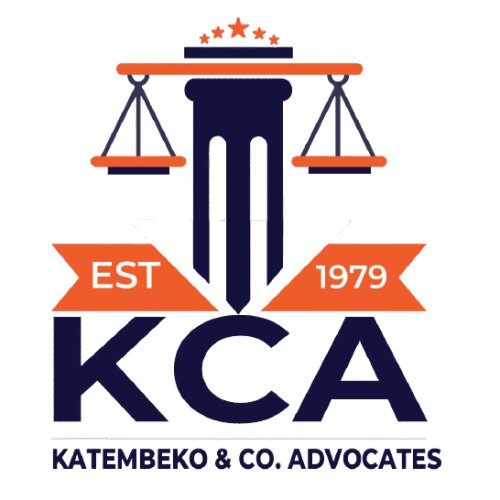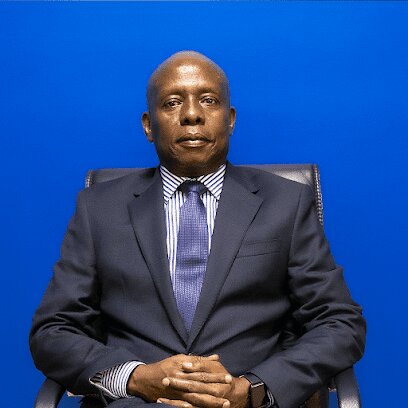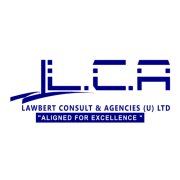Best Renewable & Alternative Energy Lawyers in Uganda
Share your needs with us, get contacted by law firms.
Free. Takes 2 min.
Or refine your search by selecting a city:
List of the best lawyers in Uganda
About Renewable & Alternative Energy Law in Uganda
Uganda is experiencing a significant transition toward the use of renewable and alternative energy sources. With abundant natural resources such as sunlight, water, and wind, the country aims to diversify its energy sources while reducing reliance on traditional fossil fuels. Renewable and alternative energy in Uganda typically covers solar, hydroelectric, biomass, geothermal, and wind energy. The government is actively encouraging private investments and community projects in the sector by implementing legal frameworks, policies, and incentives that promote sustainable energy development. Legal regulations help govern access to resources, licensing, environmental protection, infrastructure development, and consumer protection in this area.
Why You May Need a Lawyer
Engaging a lawyer with expertise in renewable and alternative energy law is often crucial for individuals and organizations operating in Uganda's energy sector. Common situations where legal help might be necessary include:
- Navigating licensing and regulatory approval processes for renewable energy projects
- Interpreting and complying with energy contracts, power purchase agreements, and lease arrangements
- Understanding incentives, tax breaks, and government support for renewable energy investments
- Addressing land use, land acquisition, and community rights in project areas
- Managing environmental compliance and impact assessment requirements
- Resolving disputes among developers, government agencies, and communities
- Protecting intellectual property related to renewable energy technology
- Handling matters involving grid interconnection, tariffs, and quality standards
A knowledgeable energy lawyer can help ensure compliance, secure approvals, protect investments, and manage risks associated with renewable and alternative energy projects.
Local Laws Overview
Uganda's legal framework for renewable and alternative energy encompasses a range of laws, regulations, and policies. The main regulatory bodies include the Electricity Regulatory Authority (ERA), the Ministry of Energy and Mineral Development (MEMD), and the National Environment Management Authority (NEMA). Key aspects of local laws include:
- Licensing Requirements: All developers must obtain licenses and permits for generation, distribution, and sale of renewable energy from the ERA after submitting feasibility studies and environmental impact assessments.
- Power Purchase Agreements (PPAs): PPAs are central to project viability and must comply with ERA guidelines on tariffs, duration, and technical standards.
- Environmental Regulations: NEMA requires environmental and social impact assessments for most renewable energy projects to ensure sustainability and minimize negative effects.
- Land Acquisition: Legal processes for land acquisition and user rights are guided by the Land Act and sector-specific policies to balance investment and community interests.
- Incentives and Tax Benefits: The Investment Code Act and energy policies provide for tax holidays, duty exemptions, and other incentives for renewable energy investments.
- Grid Access and Interconnection: Policies mandate open access to the national grid for eligible renewable projects, with technical and safety standards monitored by ERA.
Frequently Asked Questions
What are the main types of renewable energy sources supported in Uganda?
Uganda supports hydropower, solar, biomass, geothermal, and wind energy as main renewable sources.
Do I need a license to generate or sell renewable energy?
Yes, all entities intending to generate, distribute, or sell renewable energy must obtain the appropriate licenses from the Electricity Regulatory Authority.
What incentives does the government provide for renewable energy investments?
The government may offer tax holidays, duty exemptions, and access to grants or financing through various programs aimed at encouraging private sector participation.
How do I secure land for a renewable energy project?
A prospective developer must follow legal protocols, which include obtaining consent from landowners or relevant authorities and ensuring compliance with land tenure laws and community rights.
Are there environmental requirements for starting a renewable energy project?
Yes, an Environmental and Social Impact Assessment (ESIA) approved by the National Environment Management Authority is usually required for most significant energy projects.
Can households or small businesses generate their own renewable energy?
Yes, individuals and businesses can generate renewable energy for their own use. However, for larger-scale generation or selling to the grid, licensing is required.
What is a Power Purchase Agreement and why is it important?
A Power Purchase Agreement (PPA) is a legal contract between the energy producer and the consumer or utility company, setting terms for electricity sale, pricing, and delivery. It is crucial for secure financing and project viability.
How are tariffs for renewable energy projects determined?
Tariffs are determined by the ERA based on investment costs, technology type, project size, and the need to ensure affordable electricity for consumers.
What happens in case of disputes in renewable energy projects?
Disputes can be resolved through negotiation, arbitration, or legal proceedings, often involving the ERA or other government regulators as mediators.
Are there special protections for community interests and environmental sustainability?
Yes, laws require community consultation, fair compensation for land, and adherence to environmental regulations to ensure sustainability and social responsibility.
Additional Resources
For more information or assistance, the following organizations and governmental bodies are valuable resources in Uganda's renewable and alternative energy sector:
- Electricity Regulatory Authority (ERA)
- Ministry of Energy and Mineral Development (MEMD)
- Uganda Investment Authority (UIA)
- National Environment Management Authority (NEMA)
- Uganda National Renewable Energy And Energy Efficiency Alliance (UNREEEA)
- The Private Sector Foundation Uganda (PSFU)
- The Uganda Solar Energy Association
- Makerere University's Department of Energy Resources
Next Steps
If you are considering initiating a renewable or alternative energy project, seeking investment, or have encountered a legal issue within the sector, consider the following steps:
- Gather and organize all relevant documentation concerning your project or legal question.
- Research local laws and identify which regulations apply to your situation.
- Contact a qualified lawyer or law firm with experience in renewable and alternative energy law in Uganda.
- Consult with relevant government bodies or sector associations for guidance or referrals to legal specialists.
- Prepare a list of specific questions or concerns to discuss with your legal advisor.
- Stay informed about ongoing changes in policy or legislation affecting the sector.
Engaging proactive legal support from the outset can help you navigate regulations, secure approvals, and avoid costly disputes, ensuring your involvement in Uganda's energy revolution is both successful and sustainable.
Lawzana helps you find the best lawyers and law firms in Uganda through a curated and pre-screened list of qualified legal professionals. Our platform offers rankings and detailed profiles of attorneys and law firms, allowing you to compare based on practice areas, including Renewable & Alternative Energy, experience, and client feedback.
Each profile includes a description of the firm's areas of practice, client reviews, team members and partners, year of establishment, spoken languages, office locations, contact information, social media presence, and any published articles or resources. Most firms on our platform speak English and are experienced in both local and international legal matters.
Get a quote from top-rated law firms in Uganda — quickly, securely, and without unnecessary hassle.
Disclaimer:
The information provided on this page is for general informational purposes only and does not constitute legal advice. While we strive to ensure the accuracy and relevance of the content, legal information may change over time, and interpretations of the law can vary. You should always consult with a qualified legal professional for advice specific to your situation.
We disclaim all liability for actions taken or not taken based on the content of this page. If you believe any information is incorrect or outdated, please contact us, and we will review and update it where appropriate.
Browse renewable & alternative energy law firms by city in Uganda
Refine your search by selecting a city.
















